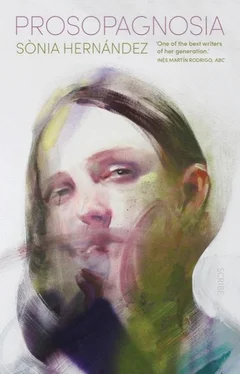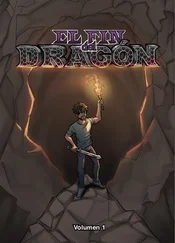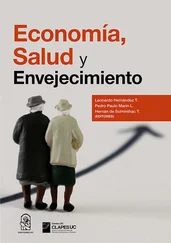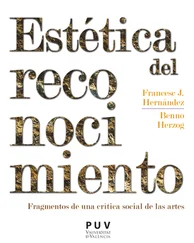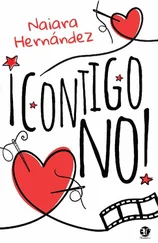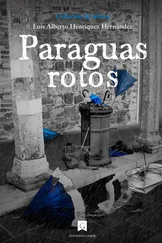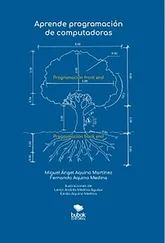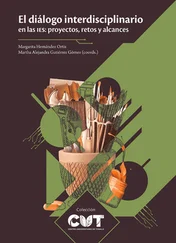Berta said that Mario had told them that there was a positive side to his illness: he could get out of most of his classes, and skip the exams. Although she didn’t know how to put it into words, I think her friend’s joke had moved her. I felt a calmness in her story that surprised me. Yes, I had heard her terrible nervous crying, but after that she was talking to me in order to convince herself that she could overcome a situation that was clearly too much for her. Words would give shape to what was happening. Words like chemotherapy, operation , radiation , or transplant seemed out of place in a conversation with my daughter, who was only fifteen years old. It was made even more strange, because these words were mixed with others like report cards , homework , exams, end-of-year trip, holidays . While she spoke, the situation she described existed as a purely semantic problem, until Berta said something like ‘I don’t want to die,’ and then hugged me.
I can’t remember exactly when my daughter discovered death. Perhaps it’s something she discussed with her father. Pablo knew it was one of the things I was most afraid of in motherhood: the day I would have to explain to my daughter that death was a part of life, and that it is inevitable. Perhaps he was the one who told her about Heaven, because it was an idea she absorbed from a very young age in her conception of the world and existence. I had never been in a situation where I had to comfort her, until then.
I would have liked to have been able to calm her, but I couldn’t think of anything better to say than that death was a long way off, that life was long, that she was just a kid, and that there were still many wonderful things that would happen in her life, so there was no point in thinking about death because right now it made no sense. Besides, Mario wasn’t dead, he was just sick, and there were advanced treatments available that could cure illnesses like his. My arguments seemed weak even to myself. I tried to reconstruct everything the artist had told me about material and its resilience, but it was no good, I couldn’t even find a way to begin. But Berta listened to me and seemed calmer. Perhaps all she needed was to express her anxiety to someone and hear a soothing voice, regardless of what that voice was saying. My daughter was too smart to be comforted by the sort of banal things I’d been saying to her.
After a while, she began to speak again. She said she couldn’t imagine living without Mario, that it was thanks to him and Lucas that she made it through the day at school. She said Lucas was an idiot for not listening to Mario when he told them about his sickness, and that afterwards he’d acted like nothing had happened and everything was still the same. Berta said that a world without Mario would be a much worse place. I told her again that it’s possible to fight illnesses, that there are effective treatments that cure them, that I had read somewhere that in seventy-five per cent of cases the illness becomes chronic, which is to say that it will still be there, but it will be stable. Berta let me speak, but when she picked up her train of thought again it was exactly the same as before I had interrupted her. A world without Mario would be much worse because he was one of those people who never gets angry and because he always did whatever he could to ensure other people had a good time. Then she said she didn’t understand why the illness had to affect him, seeing as it was her lot to suffer the ugliest, most terrible things in life. But when she looked at it properly, it did make sense, because in the end she would be the one who had to witness her best friend’s death, after which she would be stuck with Lucas, who was an idiot. So, she would suffer the worst after all. She had seen plenty of films and she thought she knew how things would go from here. What she meant was, she shouldn’t be surprised, because this was her destiny. I tried to interrupt her a couple of times, but she didn’t want to hear my arguments again. I thought I’d have to seek help from some kind of therapist. Maybe at the school, if they were already aware of Mario’s illness, they had thought about making some kind of counselling available to the students. While I was thinking about all of this, my daughter kept sobbing in my arms. She had begun crying again, this time without the nervous coughing, and at times it was difficult to follow what she was saying, but I was able to understand that she was sick of everyone trying to deceive her: teachers, classmates, her father, me… Her father and I had betrayed her, or something like that.
She also told me she didn’t understand why I had accepted those gifts from the painter. She wished he hadn’t helped her get home on the day she fainted. She’d never asked for it. She had fainted in front of the painting because she wanted to see its enormous size in three dimensions. Earlier that afternoon, in the boys’ bathroom, Mario had beaten her in one of their breath-holding contests. But this time it hadn’t been in front of a mirror, but while they stared at an illustration given to them by their psychology teacher so that they could try to see images in three dimensions. Mario was feeling smug because he had seen it in three dimensions and had been able to hold his breath the longest. So, when Berta saw that painting in the foyer, composed of cubes and figures in relief, she was reminded of the psychology teacher’s illustration, and she couldn’t help staring at it. She also told me that while she was staring at the painting, just before she fainted, she saw something in it that frightened her, but she didn’t know how to explain it. It was just a game, and that’s why she couldn’t understand all this carry-on with the painter. The painting wasn’t beautiful. Even so, it wasn’t ugly enough to form part of the ugliness of her surroundings. It was just a painting that no longer interested her, and then all of a sudden, her mother had become obsessed with going and interviewing the painter and filling their house with his artworks. She didn’t want to see them; they weren’t the kind of ugly things that made her feel better. Only truly horrendous things belonged in her world, things that turn the stomachs of those who behold them, because it reminds them that the world is not perfect, that terrible things happen, like a fifteen-year-old boy suffering from cancer, or how when your parents separate, your life is turned upside down, and it feels like the entire world is spinning backwards.
‘Would we be able to tell if the world was spinning backwards? It’s true that we can’t tell that the world is constantly spinning, but I’m sure that if the world suddenly started spinning the other way, we’d notice. When Dad lived here, we didn’t realise that was “normal” — we only realised that after he left, right?’
This wasn’t a question to which she expected an answer. I just wanted to hug her, to keep listening to her.
‘Don’t you see how great it would be to have an ibis in the apartment?’
I remembered my dream with the bird carrying a stack of papers covered with Berta’s tiny circles in its beak, stalking through the hallway, where Vicente Rojo’s painting now rested against the wall.
‘You’re right. We should get one.’
PART 2
THE MAN WHO THOUGHT HE WAS VICENTE ROJO
Not long after I finished my degree, I began working at a publishing house that put out encyclopaedias. I wasn’t sure if this was something I was passionate about or had always dreamed of doing. But, if I’m honest, I did feel lucky to have been chosen. Sometimes, when I tell my daughter about that experience, she breaks into hysterical fits of laughter. She can’t understand the importance of an encyclopaedia, because since she was born, it has been possible to type a question into Google whenever you want to know anything. But I grew up in a house where one of the walls in the dining room was covered with a bookshelf full of encyclopaedias that were so specific, I’m not sure if any of my siblings ever consulted them. My favourite was the one that covered the major events of World War II: in each of the volumes there was an appendix that included reproductions of all the front pages of Spanish and European newspapers as they broke the news of those earth-shattering events. What I liked most was looking at those front pages, especially from the European newspapers, in languages I couldn’t understand, but which I knew spoke of the war.
Читать дальше
